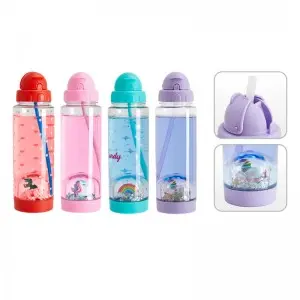Plastic bottles have become an integral part of our daily lives. Whether we use them to quench our thirst on the go or to store liquids for future use, plastic bottles have become a common item. However, with growing concern over environmental degradation, questions have arisen: Can plastic bottles really be recycled? In this blog, we take a deep dive into the complex process of recycling plastic bottles and discuss the various challenges associated with it.
Recycling process:
Recycling plastic bottles involves a series of steps aimed at diverting them from landfill and converting them into reusable material. The process usually begins with collection, where plastic bottles are sorted according to their composition and colour. Sorting helps ensure that bottles are recycled efficiently. They are then cut into small pieces called flakes. These sheets are thoroughly washed to remove any impurities such as labels or caps. After cleaning, the flakes melt and transform into pellets or granules. These pellets can be used as raw material for the production of new plastic bottles or other plastic products.
Challenges of plastic bottle recycling:
While the idea of recycling plastic bottles seems simple, the reality is much more complicated. Several challenges prevent the effective recycling of plastic bottles.
1. Pollution: One of the main challenges of recycling plastic bottles is pollution. Often, bottles are not properly cleaned before being discarded, resulting in residue or non-recyclable material mixed with the recycled plastic. This contamination reduces the efficiency of the recycling process and reduces the quality of the final product.
2. Different plastic types: Plastic bottles are made of various types of plastic, such as PET (polyethylene terephthalate) or HDPE (high-density polyethylene). These different types require separate recycling processes, so the sorting step is critical. Improper sorting can result in lower quality recycled products or, in some cases, items that cannot be recycled at all.
3. Lack of infrastructure: Another significant barrier to plastic bottle recycling is the lack of adequate recycling infrastructure. Many regions do not have the necessary facilities or resources to deal with the large volumes of plastic bottles in circulation. This restriction often results in a significant portion of plastic bottles ending up in landfills or incineration, causing environmental pollution.
Importance of Consumer Responsibility:
Recycling plastic bottles is not just the responsibility of recycling facilities or waste management companies. As consumers, we play a vital role in the recycling process. By developing proper waste separation habits and ensuring plastic bottles are clean before disposal, we can significantly increase our chances of successful recycling. Additionally, reducing the consumption of single-use plastic bottles and choosing reusable alternatives can help reduce the environmental burden of plastic waste.
in conclusion:
Plastic bottles can be recycled, but the process is not without its challenges. Issues such as pollution, different plastic types and limited infrastructure create major barriers to effective recycling. However, by addressing these challenges and promoting responsible consumer behaviour, we can contribute to a more sustainable future. So, the next time you dispose of plastic bottles, remember the importance of recycling and the positive impact it can have on our environment.
Post time: Jul-12-2023
